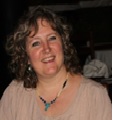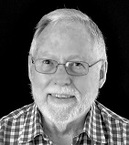
Faculty Members - A Combined Teaching Experience Over 100 Years
Mike Hinds < Mike@LondonXrayConsultingGroup.com > Course Coordinator
 Michael W. Hinds holds three degrees: B.Ed. (Hon.) University of Regina 1979, B.Sc. (Chemistry Hon.) University of Saskatchewan 1983, Ph.D.in Analytical Chemistry, University of Saskatchewan 1988. He joined the Royal Canadian Mint as the Assay Chemist in 1988 and held that position for over 31 years, retiring in the spring of 2020. He was responsible for developing precious metal reference materials and conducting method development on fire assay, wet chemical methods, spectrometric methods: flame atomic absorption spectrometry, graphite furnace atomic absorption spectrometry, inductively coupled plasma optical emission spectrometry, X-ray fluorescence spectrometry, and mass metrology.
Michael W. Hinds holds three degrees: B.Ed. (Hon.) University of Regina 1979, B.Sc. (Chemistry Hon.) University of Saskatchewan 1983, Ph.D.in Analytical Chemistry, University of Saskatchewan 1988. He joined the Royal Canadian Mint as the Assay Chemist in 1988 and held that position for over 31 years, retiring in the spring of 2020. He was responsible for developing precious metal reference materials and conducting method development on fire assay, wet chemical methods, spectrometric methods: flame atomic absorption spectrometry, graphite furnace atomic absorption spectrometry, inductively coupled plasma optical emission spectrometry, X-ray fluorescence spectrometry, and mass metrology.
He has been an instructor at the XRF Short Course held at Western University, London, Ontario, Canada (2005 – 2017) and moved with the course to Hamilton College, Clinton, NY, USA (2018 – present).
Dr. Hinds has published 46 papers in refereed journals, co-authored one textbook on atomic spectrometry (XRF chapter), contributed to 5 other books, and presented 43 invited papers at conferences throughout the world. He was on the Editorial Board and a contributor to Atomic Spectrometric Updates published in the Journal of Analytical Atomic Spectrometry for 19 years, and president of the Canadian Spectroscopy Society for 4 years.
He continues to do extensive work with the London Bullion Marketing Association (LBMA) as chair of the Reference Material Steering Committee (2007 – present) and as chair of the LBMA Assayer and Refiner Conference Working Group. He also consults with the LBMA and other companies on all manner of assaying and technical issues.
He states that: “I always keep in mind what it was like for me coming into the field of XRF as a beginner and I strive to present material with that in mind.”
Maggi Loubser < Maggi@LondonXrayConsultingGroup.com>
 Her career in X-ray Fluorescence Spectroscopy started as a laboratory technician at the Atomic Energy Corporation of South Africa in 1988. There she learned XRF in a process control laboratory.
Her career in X-ray Fluorescence Spectroscopy started as a laboratory technician at the Atomic Energy Corporation of South Africa in 1988. There she learned XRF in a process control laboratory.
In 1994 she joined the Geology department of the University of Pretoria (UP) where for the next fourteen years the X-ray laboratory was built up to a state of the art facility presenting annual short courses in XRF and Representative Sampling and Sample Preparation.
She joined PPC Cement in November 2008, where her duties involved the training, mentoring and capacity building of the chemists in the group, ensuring world-class analytical laboratory practices, manage compliance to minimum standards and implement best practices across the group. She was involved in the African expansion; assisting in the planning, building, and commissioning of laboratories all over Africa. Since October 2014 she headed the R&D team, finding innovative ways to address the challenges of a fast-changing cement manufacturing environment.
In April 2016 GeoMag GeoChem was created to provide her with the opportunity to do what she likes best, teaching, technical support in various industries and undertaking projects that can make the world a better place, without being limited by corporate structures.
In January 2019 the University of Pretoria convinced her to return to academia on a two-year contract to head up a new Masters programme in Tangible Heritage Conservation.
Currently, her life is a potpourri of different experiences: She supports the mining and manufacturing industry in the training of chemists and calibration of WD and EDXRF spectrometers, assists in method development, and does gap identification audits and walks the journey with a laboratory to address those. She does a lot of work on handheld spectrometers, setting up custom calibrations for clients in mining and manufacturing, acting as occasional crash test dummy for the software developers, and aims to introduce portable XRF as benchmark technique for art and conservation in Africa. This gives her the opportunity to play with anything from shipwreck treasures to paintings from the old masters and heritage sculptures. Her latest challenge as programme manager for the Tangible Heritage Master’s programme has her teaching science to students with a humanities background to equip them to better understand the materials they work within conservation and research of cultural heritage objects.
(1) Consultant, GeoMag GeoChem, South Africa maggi.loubser@gmail.com
(2) Senior Lecturer and Coordinator, Tangible Heritage Conservation Programme, University of Pretoria, South Africa maggi.loubser@up.ac.za
Alexander Seyfarth < Alexander@LondonXrayConsultingGroup.com >
 Alexander Seyfarth is an x-ray spectroscopist with over 20 years of experience with XRF and XRD. Alexander holds a Master degree in Mineralogy from University Giessen (1996). Thesis work for his graduate studies was done on chemical and phase investigation of kiln deposits using XRF, EPMA, and XRD as well as Rietveld structure refinement on isolated phases. Widely traveled within Europe and the Americas, he has worked onsite to install, commission and calibrate systems ranging from Semiconductor and Cement to Mining sites.
Alexander Seyfarth is an x-ray spectroscopist with over 20 years of experience with XRF and XRD. Alexander holds a Master degree in Mineralogy from University Giessen (1996). Thesis work for his graduate studies was done on chemical and phase investigation of kiln deposits using XRF, EPMA, and XRD as well as Rietveld structure refinement on isolated phases. Widely traveled within Europe and the Americas, he has worked onsite to install, commission and calibrate systems ranging from Semiconductor and Cement to Mining sites.
Training users
From the 1996 Freelance and Contract work for ceramic and cement companies within Germany, he moved in January 1997 as Application Scientist XRD and XRF to SIEMENS AXS in Karlsruhe. In December 1998 he transferred to Madison, WI as Application Scientist XRF, XRD at BRUKER AXS. A vertical move brought him in 2003 from Senior Application Scientist XRF and Product Support XRF to Customer Service. From 2006 to 2011 he was the Product Manager XRF North America for BRUKER.
After a too short stint as Sr. Application Scientist for the ARL brand with THERMO SCIENTIFIC in Madison, he was recruited as the new Sr. Global Product Manager for Hand Held XRF for BRUKER in Kennewick WA USA. This allowed him to directly influence and drive product development and the quest for more performance and capabilities in the pXRF segment! Having completed the successful introduction of the TITAN and new TRACER5i he changed from the vendor into a user function as the new Global Technical Manager for XRF with SGS Minerals.
He was taught by James Willis when he started with Siemens and has been involved with the course since 2004 as a teacher and marketing support. Maggi Loubser and he are also teaching the XRF Bootcamp organized by Getty and Yale for Art Conservators.
He is acting Chief Operation and Marketing Officer of the London X-Ray Consulting Group LLC and in charge of the licensing and technical content of training materials.
Charles Wu < Charles@LondonXrayConsultingGroup.com >
 Dr. Wu's experience with x-ray fluorescence spectrometry began in the early
Dr. Wu's experience with x-ray fluorescence spectrometry began in the early
He has extensive experience in the instrumental analysis in the use of XRF, AA, INAA, ICP-AES, and IC. Since 1990, Dr. Wu has organized the UWO XRF Course that has trained and educated hundreds. He is now Chief Executive Officer of the London X-Ray Consulting Group LLC.
Our friend, colleague, and course founder Charlie Wu has passed away July 17, 2020.
Please click on this link to see our tribute to Charlie:
Technical Advisor
James P. Willis <jwcc@iafrica.com>
 Prof Emeritus James Willis worked in the Departments of Geochemistry and Geological Sciences at the University of Cape Town (UCT) from 1960 to 2000, during which period he also gained his Masters (with distinction) and Doctoral degrees. He was initially employed as a research assistant rising through the ranks to Associate Professor in 1981.
Prof Emeritus James Willis worked in the Departments of Geochemistry and Geological Sciences at the University of Cape Town (UCT) from 1960 to 2000, during which period he also gained his Masters (with distinction) and Doctoral degrees. He was initially employed as a research assistant rising through the ranks to Associate Professor in 1981.
On his retirement from UCT in 2
He is an excellent teacher and taught courses on instrumental analytical techniques, sedimentary geochemistry, environmental geochemistry and the theory and practical aspects of Geodata Analysis (statistics). He initiated and co-directed a highly successful taught one-year Masters degree course in Environmental Geochemistry (six months lectures, 5 months dissertation) (1994-2000). From 1974 to 2015 he directed at UCT an annual intensive two-week course on the theory and practice of XRF Spectrometry for university staff and mining and manufacturing industries. The course was also given at the Department of Geology, University of Western Ontario, London, Ontario from 1991-2005. He started a bi-annual Elementary XRF course at the Central Analytical Facility at U
Over the years he gained experience in many analytical techniques, starting with DC arc optical emission spectrometry (using glass photographic plates to record the spectra!), atomic absorption spectrophotometry, electron microprobe analysis, SEM-EDX, instrumental neutron activation analysis, ICP-AES, ICP-MS, HPIC, particle size analysis, X-ray diffraction , and XRFS. He has a very broad experience in many different fields of geochemistry, including sedimentary and environmental geochemistry, meteorites, marine geochemistry, sediments, sedimentary rocks, coals and fly ash.
He describes himself as a geochemist with a strong interest in the development, promotion and application of spectroscopic analytical techniques.
Since "retiring" from UCT he has concentrated on writing four technical books on XRF:
Understanding XRF Spectrometry, Vols 1 and 2. Willis, J.P. and Duncan, A.R. (2008), 628pp. Published by PANalytical B.V., The Netherlands, ISBN: 978-90-809086-4-2 and 978-809086-5-9;
XRF Sample Preparation: Glass beads by borate fusion. Willis, J.P. (2010), 58pp. Published by PANalytical B.V., The Netherlands, ISBN: 978-90-809086-9-7;
XRF in the Workplace. Willis, J.P., Turner, K. and Pritchard, G. (2011), 280pp. Published by PANalytical, Australia, ISBN: 978-0-620-50665-6;
Guidelines for XRF Analysis. Willis, J.P., Feather, C.E. and Turner, K. (2014), 544pp. Published by James Willis Consultants cc, ISBN: 978-0-620-62961-4.
© 2023 - LXCG London X-ray Consulting Group
Janesville, WI 53545
U.S.A.
info@LondonXrayConsultingGroup.com
Privacy Policy | Web Standards | Terms of Use | Accessibility
Key Topics:
- XRF Short Course
- Workshops - Sample Prep
- On-Site Training
- Meet the Team
- Contact Us
